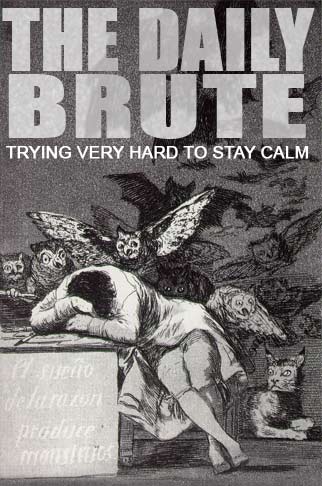
I have been re-reading Allan Clark's diaries. It's important always to remember in contemplating Clark that, in the words of a Tory whip at the time, 'He may have given the impression of being a shit. That's quite wrong. He actually was a shit.'
But I'd say that was all the more reason to like him. Even at the time, there was hardly any more politically incorrect a politician (Bongo Bongo Land anyone?). There certainly hasn't been one since. As a very rich MP, latterly a junior minister, he effectively had carte blanche to say whatever he wanted.
Nonetheless, as no more than a back bencher after 1979, he was necessarily acutely conscious of the new Tory government's vulnerability. More specifically, of the new prime minister's vulnerability.
It is easy to forget, but the first three years of Thatcher's premiership were shot through with uncertainty. However obvious the failings of the Callaghan government, there was still a widespread belief within the Conservative party that no government could survive without the help of the unions. More particularly, there was a near unquestioned assumption that taking them on meant certain defeat.
With the Falklands victory in 1982, all these apparent certainties were turned upside down. Precisely those voices who had cautioned Thatcher against military action against Argentina were also those who, entirely reasonably, had previously expressed all sorts of well-modulated doubts against taking on the unions, instead falling back on exactly those well-meant, vacuous noises that had already done such damage. They counselled periods of calm reflection, that stock should be taken, options weighed up, judgements avoided, views considered. Near instantly, they were now obliged to concede her sudden new dominance. In short, that her easily derided certainty had been right and their worldly equivocation shown for what it really was: cowardice. It was a bitter pill to swallow.
Clark recognised this from the start. Unsurprisingly, it made him many enemies with the Tory party, not that so obvious a maverick would not have found them anyway.
But there is a key point here. Almost all politicians who attain high office are 'reasonable'. Seeking solutions is their goal. Democracy demands it.
But there come times when these necessary accommodations and compromises confront undeniable realties. How do you square your well-meaning, vote-winning instincts with properly uncomfortable truths? In short, how you do confront anything apparently insoluble?
Most don't. They find themselves undone by precisely those better instincts that won them office in the first place. They find themselves undone by reasonableness.
Neville Chamberlain, by any measure a good man, precisely highlights these inadequacies. Confronted with a gangster in Hitler and, determined to do anything he could to avoid another war, he sold out. In so doing, he guaranteed exactly what he had worked so hard to avoid.
In short, compromise, reasonableness, sagacity, the wider view, the 'statesman's' overview – call it what you will – kills, done down by its own soggy rationality.
It was Margaret Thatcher's genius that she epitomised exactly the opposite view. It was awkward, ugly and uncomfortable. In defiance of almost all conventional opinion, it was also right.
Today, only the most dippy socialist (not that there is any shortage of course) could argue against her achievements: a country in seemingly terminal decline decisively reinvigorated (in the process ironically paving the way for a Labour government that owed almost everything to her).
Yet at the time, she seemed bent on a course of near suicidal risk.
And it was one, of course, from which most 'reasonable' men dissented.
Britain in 2007 is far from the sense of looming disintegration that dominated in 1979. Yet there is one obvious lesson for the new generation of conservatives under David Cameron if, genuinely, it wants to win the next election.
It is that conviction counts, whatever the consensus apparently demands. Ugliness wins votes.


No comments:
Post a Comment